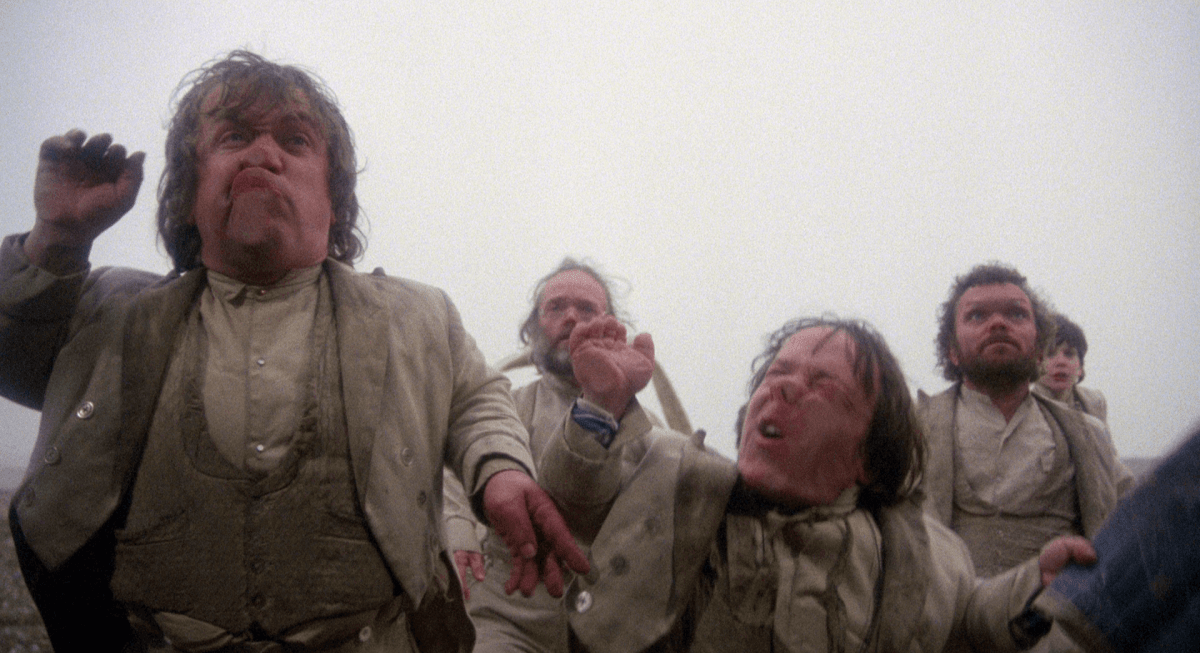‘Time Bandits’ Terry Gilliam is infamous for runaway productions that result in chaotic products. But he mostly got his stuff together for “Time Bandits,” his directorial breakthrough and one of his few bona fide box office sensations. The time travel romp was a big hit in 1981, just as it had intended to be. Gilliam couldn’t get what would become “Brazil” off the ground, so he dashed of a project that would make a lot of money: a children’s movie that was, even for 1981, pretty dark — a film that spiritually has more in common with the Brothers Grimm than his movie “The Brothers Grimm.” In truth Gilliam didn’t totally get his stuff together. “Time Bandits” was the biggest film he had made at that point, involving elaborate (but often practical) effects, real actors, plus an inexperienced child lead. Gilliam couldn’t get Hollywood excited about a children’s movie largely starring midgets and made by that animator guy from that English comedy troupe. The modest budget came entirely from Monty Python superfan George Harrison and his business partner. There were on-set headaches, plus a breakdown with executive producer Denis O’Brien that would prefigure the larger calamities that would plague much of Gilliam’s subsequent career. And yet “Time Bandits” doesn’t look chaotic. It looks controlled — or as controlled as a film by Terry Gilliam could be. In part that’s because he has an unusual partner: Michael Palin. Their duties were cleanly divided: Gilliam came up with a vague, crazy concept, Palin filled in the details with characters and jokes. “Time Bandits” isn’t a Python film, even despite the on-screen presence of both Palin and John Cleese, who scored top billing for his roughly four minutes as Robin Hood. (Guest star Sean Connery, as Agamemnon, has more screentime, but downplaying his involvement makes the sudden appearance some 45 minutes in of one of the world’s biggest movie stars in a relatively small movie that much more shocking. Even before his unexpected involvement, the script read of his first appearance, “The Greek warrior removes his helmet, revealing himself to be none other than Sean Connery, or an actor of equal or cheaper stature.”) Instead it’s a Python freak dream: two guys who never before collaborated teaming up to make something rich and strange. It is very strange, which is to say unique. It has a fat hook — time travel — but the particulars are bizarre. Feeling that simply having a kid protagonist would be dull, Gilliam paired his lead — wide-eyed, believably gawky Craig Warnock, who only acted on-screen once more, in a TV adaptation of Virginia Woolf’s “To the Lighthouse” — with people of the same size: six dwarves. But they’re not merely cute; they’re testy, prone to bickering, even violent. When they meet Warnock’s Kevin, they threaten him (not totally believably) with dismemberment. And they’re thieves: they’ve gotten a hold of a map that shows rips in time and have used it to steal history’s treasures. They just want riches and only one comes to care, just a little, about Kevin. They’re enjoyably self-serving and nasty. There’s actually not a ton of time traveling in “Time Bandits.” They hit up Napoleon (Ian Holm) and Connery’s Agamemnon as well as the Titanic, but they also visit characters whose historicity is dubious at best, namely Robin Hood, to say nothing of God (Ralph Richardson) and the Devil (David Warner). Around the hour mark our antiheroes wind up in a realm called “The Time of Legends,” where giants and other creatures roam the planet. No matter. It’s a richly imaginative lark that gets crazier the longer it goes on. And despite Gilliam’s reputation for losing control, it strikes a nimble balance between slightly-on-the-cheap spectacle and a not too Pythonian eccentricity. Cleese turns in only the screen’s second-ever-best rendition of Robin Hood (after Errol Flynn, natch), who comes off more like a clean-cut royal doling out impersonally grinning politeness while ignoring the grime, filth and comically belligerent Merry Men that surround him. Warner’s dry-humored, literally hotheaded “Evil” is another high watermark for screen depictions of Satan, while Richardson’s “Supreme Being” oozes a very English balance of officiousness and obliviousness. (The British legend’s sudden appearance at the end is in many ways funnier than Connery’s in the middle.) Would “Time Bandits” exist if Gilliam didn’t want to make a more personal, wilder statement? Probably not. But like “12 Monkeys,” it strongly suggests that, despite his reputation as a martyr for freedom and the unfiltered imagination, Gilliam is at his best when he has restrictions or even just a decent collaborator — someone he has to answer to, who will help shape his frenzied ideas into practical shape. Some of his more recent films — particularly “Tideland” and “The Zero Theorem” — are more rewarding to think about than to experience. There’s not much to think about with “Time Bandits,” but it’s also his most concentrated blast of pure filmic joy. And there’s no better example of this than the song with which it, following it’s hilariously dark ending, closes out:
Follow Matt Prigge on Twitter @mattprigge
The Criterion Collection
$39.95
Disc Jockey: ‘Time Bandits’ is Terry Gilliam at his best (i.e., with restrictions)

Criterion Collection















